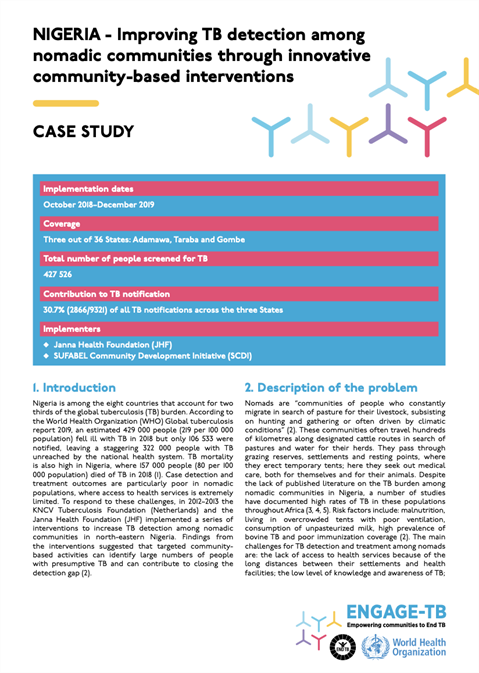Nigeria - Improving TB detection among nomadic communities through innovative community-based interventions
Case study

Overview
Nigeria is among the eight countries that account for two thirds of the global tuberculosis (TB) burden. According to the World Health Organization (WHO) Global tuberculosis report 2019, an estimated 429 000 people (219 per 100 000 population) fell ill with TB in 2018 but only 106 533 were notified, leaving a staggering 322 000 people with TB unreached by the national health system. TB mortality is also high in Nigeria, where 157 000 people (80 per 100 000 population) died of TB in 2018. Case detection and treatment outcomes are particularly poor in nomadic populations, where access to health services is extremely limited. To respond to these challenges, in 2012–2013 the KNCV Tuberculosis Foundation (Netherlands) and the Janna Health Foundation (JHF) implemented a series of interventions to increase TB detection among nomadic communities in north-eastern Nigeria. Findings from the interventions suggested that targeted community- based activities can identify large numbers of people with presumptive TB and can contribute to closing the detection gap.
